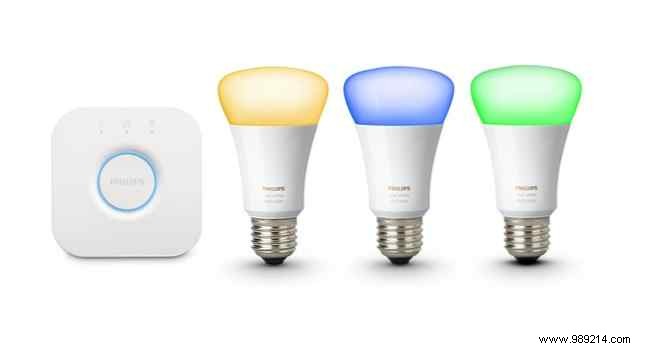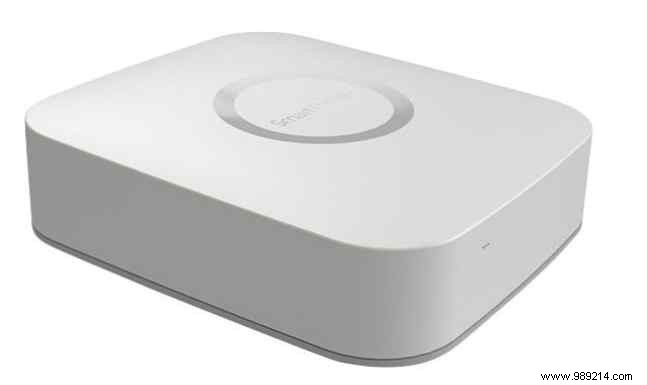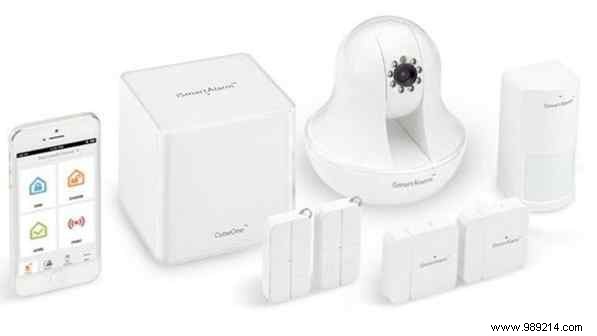Welcome to 2018. Maybe you've decided this is the year you'll turn your boring, silly house into the envy of your neighborhood. Yes, 2018 is the year you finally get the smart home of your dreams.
But before you hit the stores and spend all your money on every smart device under the sun, you need to spend a little time doing your research first. Not all smart home gadgets are worth it. Some are too expensive, some are unnecessary, and some are a security nightmare.
In this article, we'll take a look at five popular devices you shouldn't invest in. For each one, we'll explain why you should give it a lot of space.
Why should you avoid it? It's too expensive.
The Philips Hue brand was responsible for bringing the world of smart lighting into the public consciousness.
The company's vast marketing budget, coupled with its long history in the light bulb business, allowed Hue bulbs to gain a level of recognition that would not have been possible for start-ups.

However, times have changed. There are many smaller smart light manufacturers on the market today, many of whom offer great products at significantly lower prices. Philips Hue alternatives that are really worth it Philips Hue alternatives that are really worth it The Philips Hue system is leading the charge when it comes to smart lighting, but there are some worthy alternatives out there. We have chosen three that offer the same basic feature set and hackability. Read more . We have seen several of them in detail in an article elsewhere on the site.
We also decided that it would take almost a decade to break down 5 Reasons Philips Color Bulbs Are Overpriced and Pointless 5 Reasons Philips Color Bulbs Are Overpriced and Pointless to Think About Buying a Philips Hue smart lighting system to save money and create lighting effects. Read this article first, because Philips Hue realities don't always live up to the hype. Read More If you buy a product with less initial cost, the period will be much shorter.
Why should you avoid it? It's useless in a flood.
Water sensors have their place in the world of the smart home. They can alert you to a slowly leaking faucet in the basement or an overflowing bathroom upstairs.
But the Fibaro product ambitiously calls itself a "flood sensor." First of all, we're not sure we need a technology to tell us that our house is under three feet of water.

Second, what happens if you lose power during a severe storm? This is when you most need the sensor to work, but unless you've had the foresight to charge the emergency battery, you're out of action.
Away from the practicalities of using a flood sensor, many users have also complained of a poor experience setting up the device.
Keep your wallet in your pocket.
Why should you avoid it? The hubs are reaching the end of their useful life.
Admit it, you thought a hub was an essential part of any smart home setup, right? To fully understand why smart home hubs might be reaching their natural end of life, we need to look back in history.
In 2012, just as home automation was becoming a mainstream consumer. “thing,” A small Kickstarter campaign was launched. Twelve months later, he had raised over $1 million and SmartThings was born. Solved the Achilles tendon of smart homes:power.
By allowing devices to communicate using low energy protocols like Z-Wave and ZigBee, what is the difference between Zigbee and Z-Wave? Here is everything you need to know What is the difference between Zigbee and Z-Wave? Here's everything you need to know To ensure your smart home devices communicate well with each other, it's important to know which wireless language they speak! Here is everything you need to know about Zigbee and Z-wave. Learn more:Batteries in standalone smart devices can last for years instead of days.
Soon, various competitors were emerging. But when the market began to gain strength in the foreground, in the background, a threat lurked.

Bluetooth LE was released in 2011. By 2015, it was common in smart home devices. Simultaneously, Wi-Fi devices were getting better. Improved power efficiency means devices could connect directly to a phone over a Wi-Fi network. Hubs were becoming unnecessary.
Today, the latest ruling for smart home hubs has been the massive success of Amazon Echo vs. Amazon voice-controlled smart speakers. Google Home vs. Apple HomePod Amazon Echo vs. Google Home vs. Apple HomePod In this article, you will learn Differences between Amazon Echo and Google Home. We'll also take a look at what features an Apple speaker can include. Read More They are now the heart of the typical smart home.
Echo (2nd Generation) - Smart Speaker with Alexa - Heather Gray Fabric Echo (2nd Generation) - Smart Speaker with Alexa - Heather Gray Fabric Buy Now on Amazon $69.99
Sure, they don't communicate using low-energy protocols, but accessible APIs allow companies' new products to plug right into the ecosystem.
Bottom line? Save your money and buy a voice controlled speaker instead of a hub.
Why should you avoid it? A traditional alarm is safer..
Look, we're not ignoring home security. A reliable alarm system is a crucial part of any residence. And therein lies the problem with intelligent security systems:dependency.
Dependency can be divided into two aspects:physical security and virtual security. Smart alarms are not as efficient as traditional alarms at any point.
From a physical security standpoint, smart alarms rely on a Wi-Fi connection to get security alerts for their owners. So what if your Wi-Fi is offline? When it comes to staying on top of home security issues when you're away, you trust your ISP. Probably not wise.

On the other hand, traditional alarms are connected to the telephone line. If you pay for a monitoring service, the alarm company can notify the police and you as soon as an incident occurs.
And from a virtual security point of view, you are vulnerable to hackers. Think how many smart devices have been hacked in recent years. 5 Security Issues to Consider When Building Your Smart Home. 5 Security Issues to Consider When Building Your Smart Home. Many people try to connect as many aspects of their lives to the web as possible, but many people have expressed genuine concerns about how secure these automated living spaces are. Read more:smart TVs, baby monitors, even children's toys. In a famous case in 2014, a man started yelling at a sleeping child after hacking into the monitoring system.
It doesn't take long until a smart alarm system is hacked. And when it happens, you don't want to be the unlucky recipient.
Stay safe and install a traditional alarm with a private monitoring service. You'll never miss a notification, and it can't be hacked.
Why should you avoid it? Because it is a smart toaster..
It's always fun to end these lists with something a little silly, and the smart home has an almost limitless supply of contenders. We've covered a lot of smart home products you don't need 14 Ridiculous Smart Home Products You Don't Need 14 Ridiculous Smart Home Products You Don't Need Many "smart" products are a waste of money, due to privacy and security concerns, and make you look foolish. Maybe think twice before trying any of these products! Read more elsewhere on the site.
Today's entrant is the Griffin Smart Toaster. Its main feature is that it can send you a notification when your bread has burned to the exact level of crispness you want.

Look, we can see why he's attractive. In a twisted way, it sounds almost cool. But the price is $100. My toaster is less than $10 and it makes the bread exactly how I like it.
CASDON Morphy Richards Toaster Set, Red/Gray/Black CASDON Morphy Richards Toaster Set, Red/Gray/Black Buy Now On Amazon $6.99
A smart toaster, like so many others. “smart home appliances,” is useless. It will not improve your life. Don't bother.
Here are five devices you don't need to include in a smart home to make it work efficiently. Either the technology is outdated, there are cheaper alternatives available, or it could be a security risk. Trust us, there are thousands of devices out there that are much better for building your smart home How to Build an Effective and Affordable Smart Home from Scratch How to Build an Effective and Affordable Smart Home from Scratch what they are? Interested in smart gadgets but don't know where to start? This article has everything you need to start building your own smart home. Read more.
If your friend were building a smart home tomorrow, what devices would you tell them to avoid? What gadgets have you owned that turned out to be a disappointment?